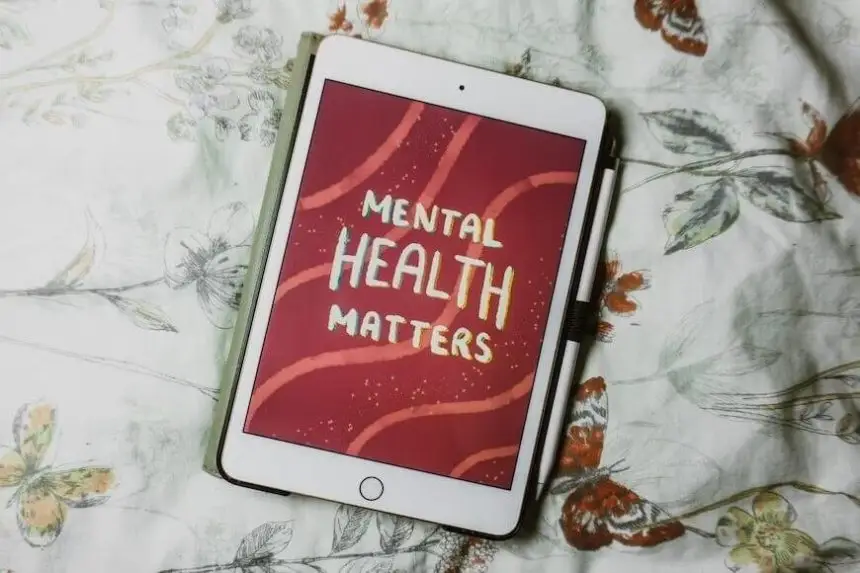Introduction
Expertise has change into an inseparable a part of trendy life. From smartphones to social media and streaming providers, know-how connects us, entertains us, and makes our every day lives extra handy. Nevertheless, with this elevated reliance on know-how, a brand new problem has emerged: know-how dependancy. This over-dependence on units and digital platforms can considerably impression psychological well being, resulting in points akin to anxiousness, despair, sleep problems, and lowered social interactions.
On this article, we’ll discover the impression of know-how dependancy on psychological well being, talk about the indicators and signs of know-how dependancy, and supply methods for managing display screen time to take care of a more healthy relationship with know-how.
Understanding Expertise Dependancy
Expertise dependancy, also referred to as web dependancy or display screen dependancy, refers back to the compulsive use of digital units akin to smartphones, computer systems, gaming consoles, or any technology-driven exercise that results in unfavourable penalties in every day life. In contrast to different types of dependancy, know-how dependancy is refined and infrequently troublesome to acknowledge, because it entails actions which might be broadly accepted as a part of trendy life.
In response to a examine revealed by Pew Analysis, 81% of People now personal a smartphone, and most of the people spend a mean of 4-6 hours per day on their units. This heavy use of know-how can progressively intervene with psychological well-being, resulting in temper problems, decreased productiveness, and a decline in interpersonal relationships.
The Psychological Well being Influence of Expertise Dependancy
Extreme use of know-how can have a profound impression on psychological well being, typically affecting emotional regulation, cognitive perform, and social habits. The next are among the major methods know-how dependancy can hurt psychological well-being:
1. Elevated Anxiousness and Stress
Fixed connectivity by means of smartphones and social media can contribute to elevated anxiousness and stress. Notifications, messages, and countless scrolling create a way of urgency and worry of lacking out (FOMO), which may result in heightened anxiousness. Analysis from the American Psychological Affiliation (APA) discovered that people who examine their telephones regularly usually tend to report feeling harassed. Actually, the APA’s 2017 Stress in America survey reported that 86% of People who continually examine their units expertise elevated stress ranges.
2. Melancholy and Social Isolation
Social media platforms, whereas designed to attach folks, may also result in emotions of loneliness and despair. Extreme time spent on social media may end up in social comparability, the place people continually evaluate their lives to the seemingly good lives of others. This comparability can erode vanity and contribute to emotions of inadequacy. A examine revealed within the journal *Computer systems in Human Habits* discovered that people who spend greater than 2 hours per day on social media usually tend to report emotions of despair and loneliness in comparison with those that restrict their use.
3. Sleep Problems
Expertise dependancy can intervene with sleep patterns, significantly attributable to blue mild publicity from screens. The Nationwide Sleep Basis states that blue mild suppresses the manufacturing of melatonin, the hormone answerable for regulating sleep. Because of this, people who use their units late into the evening typically expertise issue falling asleep, poor sleep high quality, and insomnia. Extended sleep deprivation can exacerbate psychological well being situations akin to anxiousness and despair.
4. Impaired Cognitive Perform
Heavy know-how use may also impair cognitive perform, significantly focus and reminiscence. Fixed multitasking between apps, web sites, and social media platforms can cut back consideration spans, making it more durable to deal with vital duties. In response to a examine by Microsoft, the common human consideration span has dropped to only 8 seconds—a decline attributed partially to the rising use of know-how. This decline in focus can result in decreased productiveness, frustration, and even elevated stress ranges.
5. Decreased Interpersonal Expertise
Whereas know-how permits us to remain related just about, it will possibly diminish face-to-face communication abilities. People who spend extreme time on their units might expertise difficulties participating in real-life social interactions, resulting in elevated social anxiousness and discomfort in group settings. Over time, this reliance on digital interactions can weaken the flexibility to kind significant in-person connections.
Indicators and Signs of Expertise Dependancy
Recognizing the indicators of know-how dependancy is step one towards addressing its impression on psychological well being. Some frequent signs embrace:
– Compulsive checking of units: Feeling the necessity to examine your cellphone, e mail, or social media accounts continually, even when pointless.
– Withdrawal from real-life actions: Avoiding social occasions or tasks in favor of display screen time.
– Anxiousness when disconnected: Feeling anxious or irritable when unable to entry a tool or the web.
– Decreased productiveness: Spending extra time on know-how than meant, resulting in poor work or faculty efficiency.
– Sleep disturbances: Experiencing issue falling asleep or staying asleep attributable to late-night display screen use.
– Neglect of bodily well being: Prioritizing know-how use over bodily exercise or correct diet.
Methods for Managing Expertise Dependancy
Whereas know-how is a central a part of trendy life, it’s potential to create more healthy boundaries and handle display screen time successfully. Listed below are some sensible methods for managing know-how dependancy and enhancing psychological well-being:
1. Set Display screen Time Limits
Establishing clear limits on display screen time might help cut back compulsive gadget use. Most smartphones now have display screen time monitoring options that permit customers to set every day limits for particular apps or actions. By monitoring and limiting utilization, people can change into extra aware of their know-how habits and allocate extra time to offline actions.
2. Apply Digital Detox
A digital detox entails taking intentional breaks from screens to reconnect with real-life experiences. This may be so simple as setting apart a number of hours every day to interact in actions like studying, exercising, or spending time outside. A examine performed by the College of Pennsylvania discovered that members who restricted their social media use to half-hour per day skilled vital enhancements in well-being and reductions in anxiousness and despair.
3. Prioritize Face-to-Face Interactions
Fostering in-person relationships is important for sustaining emotional well being. Make an effort to prioritize face-to-face interactions over digital communication at any time when potential. Socializing in actual life might help fight loneliness, cut back social anxiousness, and strengthen interpersonal connections.
4. Create Expertise-Free Zones
Designating sure areas of your own home, such because the bed room or eating space, as technology-free zones might help cut back the temptation to interact in display screen time. This encourages extra significant, present-focused interactions with household or mates, in addition to selling more healthy sleep habits.
5. Apply Mindfulness
Mindfulness methods, akin to meditation or deep respiratory workouts, might help people develop higher consciousness of their know-how use and its impression on psychological well being. Practising mindfulness may also cut back stress and anxiousness attributable to compulsive gadget use. Research have proven that people who observe mindfulness report decrease ranges of tension and despair, significantly these associated to know-how overuse.
Conclusion
Expertise dependancy is a rising concern that may considerably impression psychological well being. From elevated anxiousness and despair to sleep problems and impaired cognitive perform, the overuse of digital units can have far-reaching penalties. Nevertheless, by recognizing the indicators of know-how dependancy and adopting methods like setting display screen cut-off dates, working towards digital detox, and fostering real-life interactions, people can preserve a more healthy relationship with know-how.
You will need to keep in mind that whereas know-how presents many advantages, stability is essential. By being aware of how we use our units, we are able to shield our psychological well being and enhance our general well-being.
Sources:
1. Pew Analysis Heart. (2019). Smartphone possession and use within the U.S.
2. American Psychological Affiliation. (2017). Stress in America survey: The impression of know-how.
3. Nationwide Sleep Basis. (2019). Blue mild and sleep disruption.
4. Microsoft. (2015). The decline in human consideration span: Implications of know-how use.
5. College of Pennsylvania. (2018). Results of limiting social media use on well-being.
6. Computer systems in Human Habits. (2018). Social media use and emotions of despair and loneliness.









